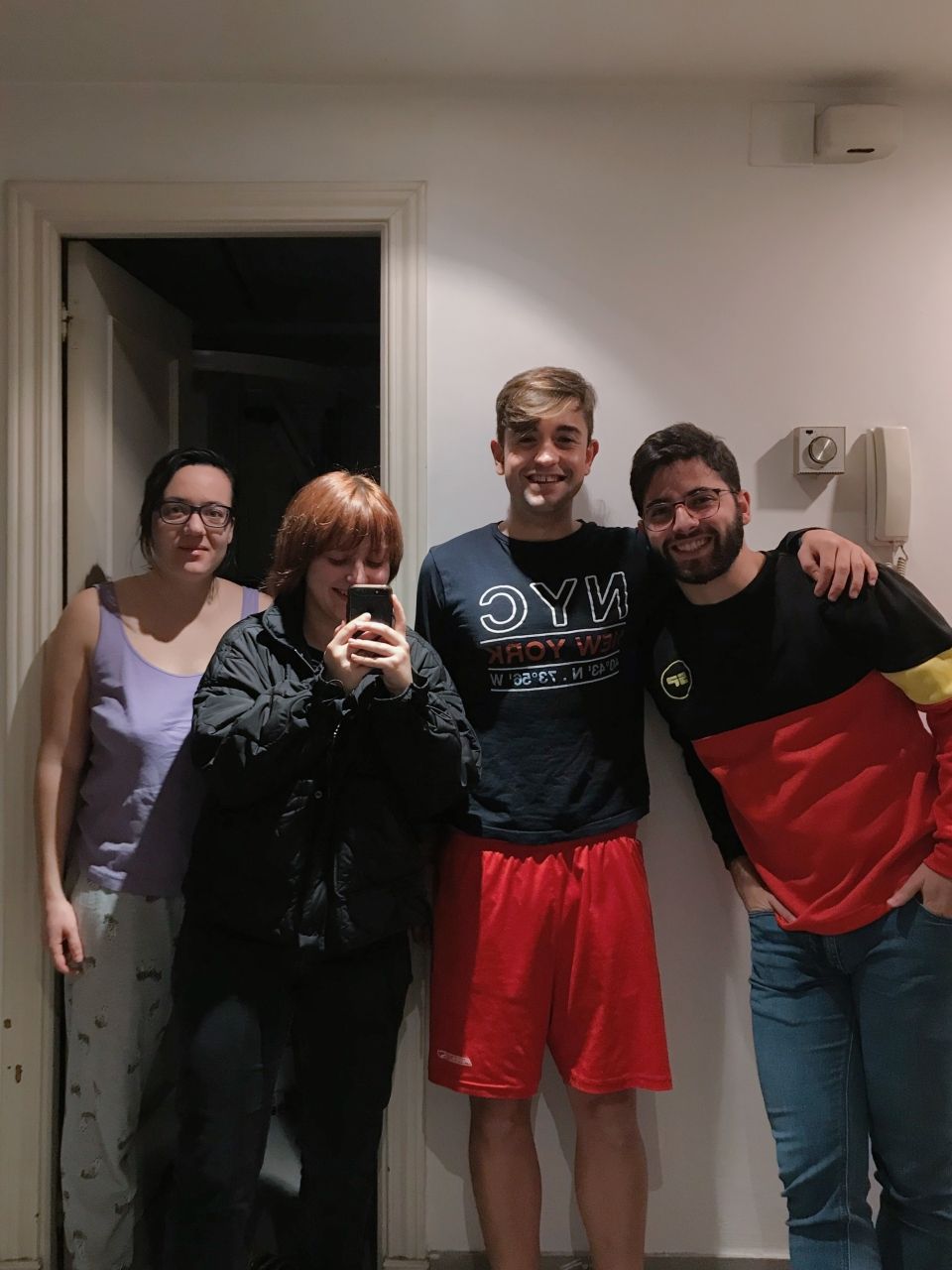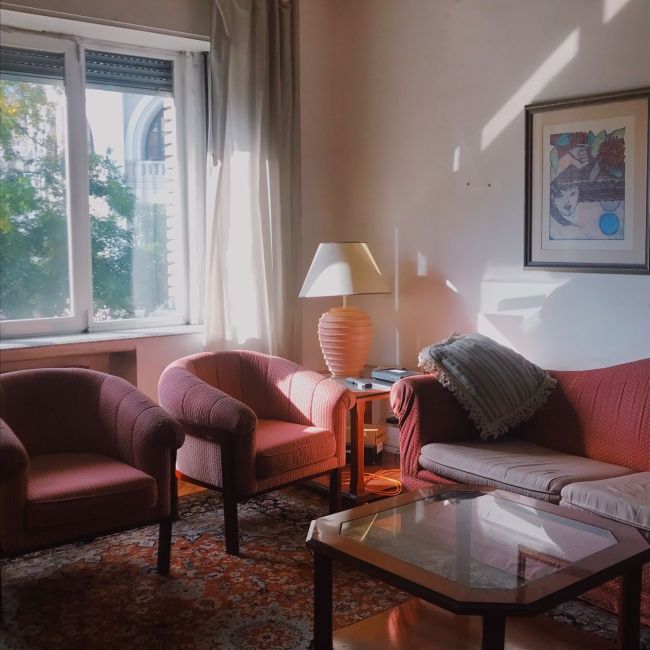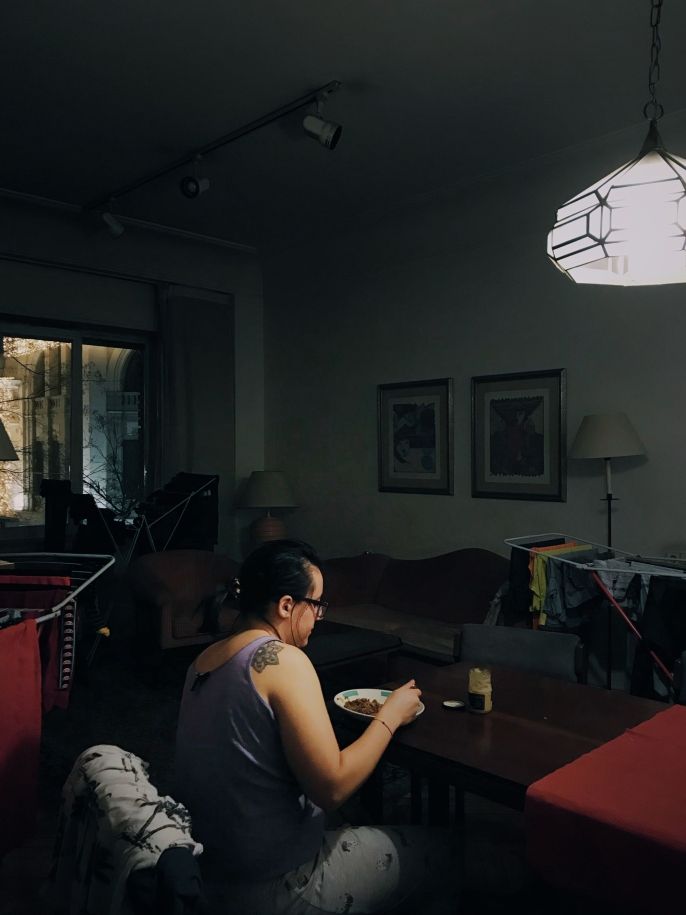Convivencia: Living with Roommates Abroad
When looking for housing in Madrid, I had a lot of factors to consider—one of them being roommates.
Contrary to the roommate situation in the States, in which you usually meet and secure a roommate before looking for apartments together, it’s much easier in Spain to look for your own habitación in an already shared apartment, and sign a contract independently of your compañeros de piso. Websites like idealista and fotocasa among others have the option to look for individual rooms. Initially, I was committed to planning on living alone. In the States, and thereby, for all of my adult life thus far, I had never had a pleasant or easy experience with roommates. But after looking at the available apartments and weighing my options, I found that ultimately, it was less expensive, more flexible, and more ideally located, to live in a shared apartment.
The people with whom you share an apartment aren’t necessarily the most important part of your experience abroad, but they definitely play a significant role in your everyday life, especially when developing a personal definition of what it means to feel ‘at home’.
At the moment, I live with three other people in Principe Pío. We are all young adults, and we share quite a lot between the four of us, aside from the space itself–two bathrooms, a washing machine, tupperware. We each rent our rooms individually from our landlord. It’s a nice setup.
Two of my roommates are Spanish, but neither of them are actually from Madrid. One is from Bilbao and is going to university, and the other is from Sevilla and is both going to school for his Master’s degree as well as working to supplement his studies. My last roommate is Italian and is also teaching in a Madrid school, albeit, not in the Auxiliares program. Since she has an EU passport, she applied for a work visa to teach at a private school. We have a similar schedule, and, surprisingly, she’s the roommate I would talk with the most when I moved in–she lived in London for quite a long time, so she speaks English quite fluently.
Communication is essential when living with other people, and, as I’m in a foreign city, I was concerned that I wouldn’t be able to talk with my roommates due to the language barrier. Luckily, all of them speak English to a certain degree–and when they’re at a loss, I can usually make up for it with my Spanish. It’s definitely motivating to learn a language when it’s the only one (or, at the very least, the most common one) you can speak at home. Linguistic disparities are surprisingly the least of my concerns.
Similarly, cultural differences are surprisingly not that stark among us. As we’re all students (or, student-adjacents, really), our diets and thereby cupboards resemble one another fairly eerily. Yogurt, pasta, sandwiches, quick salads, fried food, and beer are the staples. Sometimes we share a meal, but for the most part we make our own. House clothes–more generally–are a thing in Spain. I noticed at the beginning of my lease that once my roommates got home, they would usually immediately change into comfier clothes or pajamas, and always tended to wear slippers or house shoes when not in their rooms. If they went out later, they’d change back into regular clothes. What’s more, it’s uncouth to wear leggings or athleisure wear outside of the house, unless going to the gym. The biggest cultural difference I’ve noticed, and of course, the most stereotypical, is that I’ll find my Spanish roommates from time to time watching fútbol games in our common room. Juan’s favourite team, as he’s from Sevilla, is Real Betis.
The benefits of living with roommates who are from Spain are many. Of course, the aforementioned motivation to learn a new language and to practice speaking skills is one, but it also helps that they’re familiar with renting laws, can talk to neighbors and the landlord on your behalf (especially if you don’t have the vocabulary to explain something like a broken appliance), and likewise can usually explain things–like facturación bills–if you don’t understand.
Otherwise, the benefits and disadvantages of having roommates abroad are the same as if you had them anywhere. If you get locked out, someone’s usually home, there’s always someone to talk to, you have an extra hand when assembling IKEA furniture, your bills are less expensive, and sometimes, they even cook you food. Your stuff will be moved or "borrowed" (stolen), there will be arguments and messes, they won’t buy toilet paper. You’re never alone; but, you’re never alone.
Even as someone who has had deeply negative experiences with roommates and landlords in the past, I’ve felt genuinely happy and grateful to meet and live with mine. Electing to live with international roommates has enriched my experience teaching abroad, and changed my outlook about shared housing for the better.

As this article comes to a close, it’s worth noting that from the get go, I didn’t want to live with other Americans and factored that into my search for housing, but there are other people in the program that really enjoyed their roommate situation and searching for full apartments as groups of multiple people. In addition, if you prefer, you can meet roommates beforehand through CIEE, or, anywhere on social media, like any of these groups on facebook, for example.
You might also be interested in living with a Spanish family through homestay. CIEE partners with the organization Babel Bridges to coordinate homestays with families in Spain, as well as TANDEM Escuela Internacional for short-term immersion. This requires a bit more planning, and usually some paperwork, so if you’re keen on pursuing this path make sure to start your search in advance.
Whether you elect to live with your friends from the States, fellow Auxes who you meet abroad, or with complete strangers, ultimately, your roommates are only one part of your whole experience living in Madrid.
Have you lived with people from other countries? What differences in your home life do you think would seem the most strange to others? Let me know your thoughts on instagram and twitter by tagging me @nampahceitac.
Related Posts

The Blog Has A Sister!
It was August 2025 when I started writing this blog - just over 6 months ago, before I left for Spain. To say I'm relieved that I've consistently published my... keep reading

Pack Perfectly Every Time: A Guide to Getting Your Luggage Right
The first time I ever flew alone, I was 14 years old. My best friend had moved to Scottsdale, Arizona, and my mom said that she’d let me fly by... keep reading

10 Travel Tips & Tricks I Live By
Trying to avoid unnecessary stress, enjoy your trip as much as possible, and reap the benefits of spending money? Me too, and it's simple! Below are 10 travel tips I... keep reading



